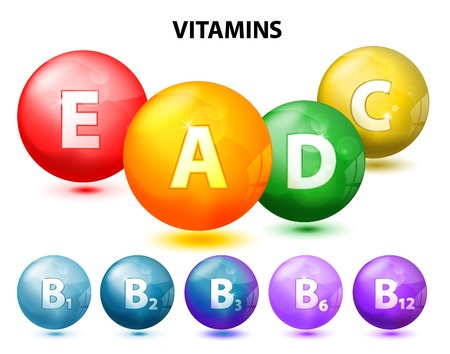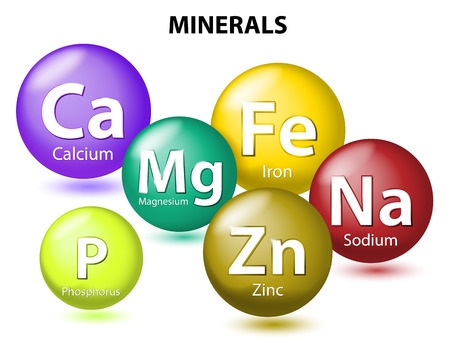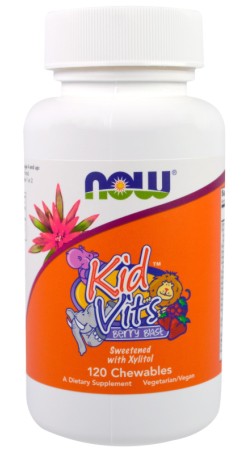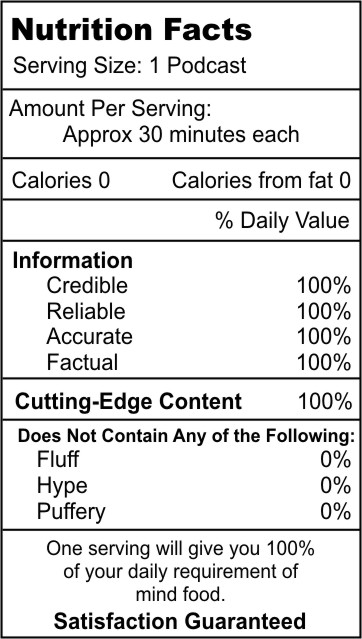Podcast: Play in new window | Download (Duration: 47:11 — 86.7MB)
Good eating habits begin at an early age
NOW Foods has a written Guide to Children’s (nutritional) Health. This articulates the challenge of childhood nutrition very well. I am happy to offer it to you here. Reprinted with permission.
“As any parent can attest, getting our little ones to eat anything, let alone healthy foods, often requires a Herculean effort worthy of its own book or movie. Kids are finicky by nature, but they always seem to have an unhealthy aversion to fruits and vegetables to go along with an unhealthy hankering for less healthy foods, such as mac-n-cheese, hot dogs and pizza.
Is it a coincidence that unhealthy foods are the ones kids want most? Hardly. Over the years the food industry has made processed food appeal a fine science. Special ingredients and specialized processing methods create near-irresistible flavors and textures that are designed to create desire and keep us coming back for more. “You can’t eat just one” applies to a lot more than just chips these days. Aside from this, kids just tend to be picky, a phase that typically departs without much fanfare as kids approach their school years.
Unless your kids love a diverse diet comprised of fruits, veggies, whole grains, lean meats, and small amounts of healthy fats they’re probably not getting the recommended daily levels of important nutrients they need for optimal growth and development.
Developing Healthy Eating Habits

Newborns and infants get all the nutrition they need from breast milk and/or formula. Meeting a newborn’s nutritional needs isn’t much of a concern during the first couple of months. But as an infant is weaned off of formula and breast milk and onto solid foods, nutrition suddenly becomes a much bigger concern.
First-time parents discover rather quickly that toddlers put the “icky” in finicky. They’ll like certain things and despise others, and this will change daily (and sometimes hourly). Meals can become a source of frustration for parents trying to get their kids to eat healthily, or just eat anything at all.
It’s very important to stay the course and continue to offer your child healthy foods, even if they don’t eat them initially. Research shows that kids often won’t try something until it’s been offered to them 15 or more times, on average. It’s just as important, if not more so, for parents to eat healthily, not only for their own health but to set a good example for their children. It’s no secret that children copy their parents. Exhibiting the eating habits you’d like your child to adopt is one of the best ways to ensure they’ll develop healthy eating habits for life. Don’t give up or give in!
Supplements to the Rescue
Ensuring your children get the necessary nutrients to meet their needs gets a lot easier when you incorporate supplements into your family’s daily health regimen.
By definition and design, a supplement is “something added to complete a thing, make up for a deficiency, or extend or strengthen the whole.” A nutritional supplement isn’t intended to be the primary source of nutrition for children or adults. Rather, a supplement is intended to address a short-term deficiency in the diet.
As adults, we have the freedom to make educated choices about the foods we eat and the level of nutrition we obtain. Children rely on their parents to make these decisions for them. If your child isn’t eating a wholesome, well-rounded diet on a daily basis, then supplements really are an ideal way to ensure adequate daily intake of nutrients, until their eating habits change or they’re old enough to make diet decisions for themselves.
 What are the Most Important Nutrients for Children’s Health?
What are the Most Important Nutrients for Children’s Health?
While a well-rounded diet and plenty of daily activity are always the best ways to maintain health, supplements are a great way to fill in the gaps until these healthy habits are fully formed. Growing bodies and minds need a vast number of nutrients for optimal development. For children, all nutrients are important in some way, but some are more important than others. It is interesting to note that these are the same nutrients that are also deficient in adults as well. No surprise there.
 Vitamin A – Vitamin A is necessary for healthy visual function and supports healthy immune function.*
Vitamin A – Vitamin A is necessary for healthy visual function and supports healthy immune function.*- Vitamin C – Vitamin C helps support normal immune function, it also plays a role in brain development and health.*
- Vitamin D3 – Vitamin D3 is necessary for optimal structural development and normal immune system function.*
- Vitamin E – Vitamin E helps support immune system health and normal cognitive function, and it’s good for our skin.*
 Calcium – Calcium is essential for the development of strong bones and teeth in kids, calcium is also important for the proper function of the cardiovascular and nervous systems, and for cognitive health.*
Calcium – Calcium is essential for the development of strong bones and teeth in kids, calcium is also important for the proper function of the cardiovascular and nervous systems, and for cognitive health.*- Magnesium – Magnesium helps your body absorb calcium.*
- Potassium – Potassium and sodium work together to maintain a healthy balance of water in the body, which in turn supports healthy cardiovascular function, specifically blood pressure.* It’s a crucial nutrient for muscles.*
- Zinc – Zinc is super-important for overall growth and development, healthy immune system function, cognitive health, and neurological function.*
- Iodine -In children, the thyroid gland uses iodine to produce thyroid hormones.*
- Omega-3 DHA – DHA is essential for the healthy growth and development of the eyes, brain, and nervous system.*
- Fiber -Fiber helps maintain digestive regularity and proper stool consistency.*
- Enzymes – Digestive enzymes are essential to the body’s absorption and full use of food.*
- Probiotics -Healthy intestinal flora also helps to create a favorable environment for the absorption of nutrients.*
- Multivitamin – If your child just won’t eat healthily, a low-dose multivitamin with all of the nutrients kids need is a smart choice. *”
Read the full content of this post here: NOW Guide to Children’s Health.
 If you have school-age children you will learn more healthy tips to support kids at school here at NOW’s Back to School web page.
If you have school-age children you will learn more healthy tips to support kids at school here at NOW’s Back to School web page.
 NOW Foods produces many nutritional supplements for children. Good nutrition is always important, but never more so than in our first few years of life. These crucial years are when our greatest growth and development occur. It’s absolutely vital that we obtain the necessary nutrients to support this maturation process. This is where children’s supplements and children’s vitamins come into play. Just like adult supplements, children’s supplements can help fill the nutritional gaps in your child’s diet and keep them growing and developing the way they’re intended to.* View NOW Foods products for children.
NOW Foods produces many nutritional supplements for children. Good nutrition is always important, but never more so than in our first few years of life. These crucial years are when our greatest growth and development occur. It’s absolutely vital that we obtain the necessary nutrients to support this maturation process. This is where children’s supplements and children’s vitamins come into play. Just like adult supplements, children’s supplements can help fill the nutritional gaps in your child’s diet and keep them growing and developing the way they’re intended to.* View NOW Foods products for children.
About Neil Levin, CCN, DANLA
Neil E. Levin,is the Senior Nutrition Education Manager and a product formulator for NOW Foods. He is a board-certified clinical nutritionist with a diplomat in advanced nutritional laboratory assessment. The U.S. Natural Products Association (NPA) presented Neil its Industry Champion Award in 2008 for “people who have made notable individual contributions to the natural products industry above and beyond what is expected to achieve commercial success.”Neil’s interviews and articles are published in magazines and newspapers. He has been featured in many radio interviews and television news reports. Neil blogs at www.honestnutrition.com; is on Facebook (Honest Nutrition) and Twitter (neilelevin).












{ 0 comments… add one now }